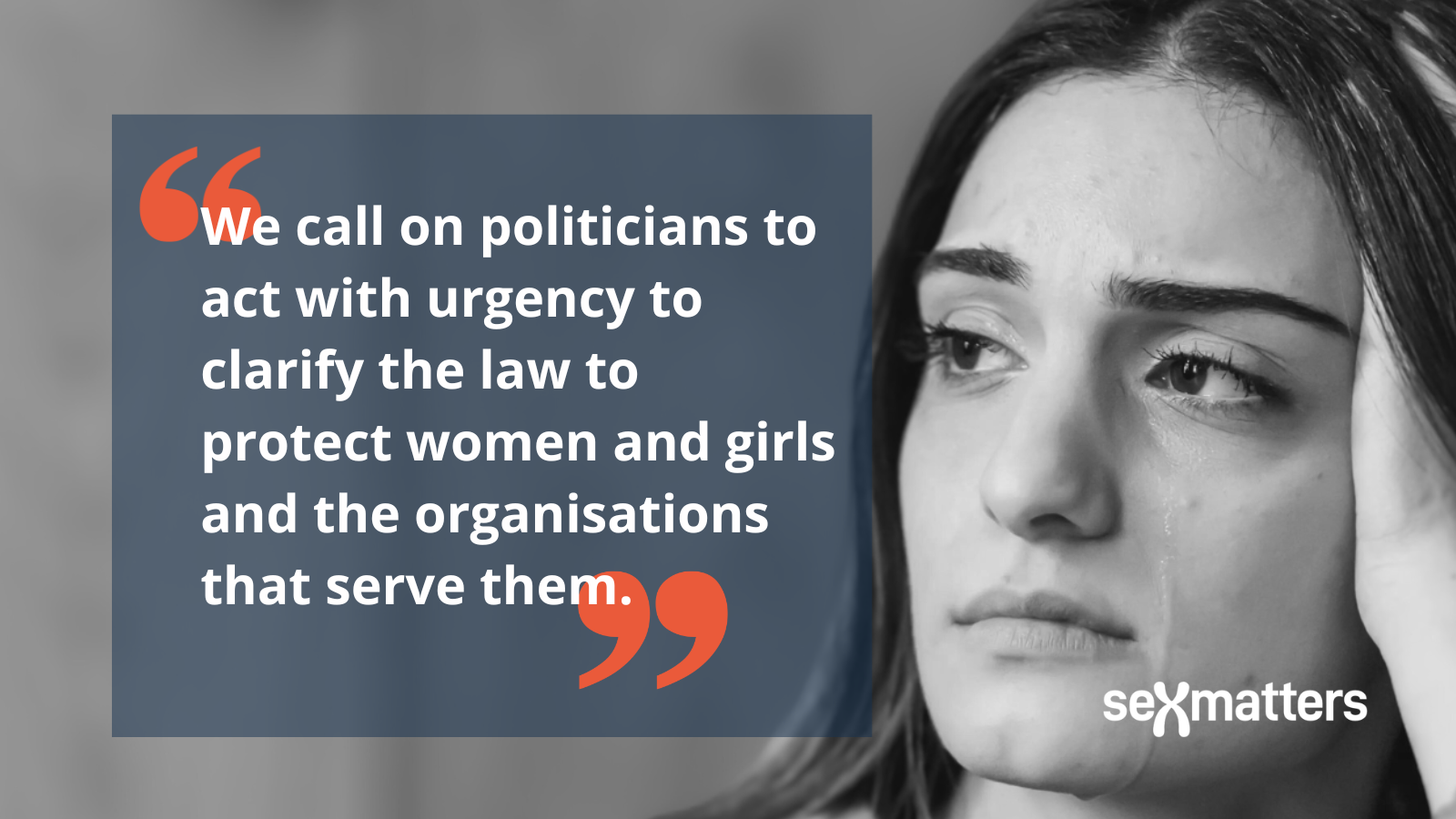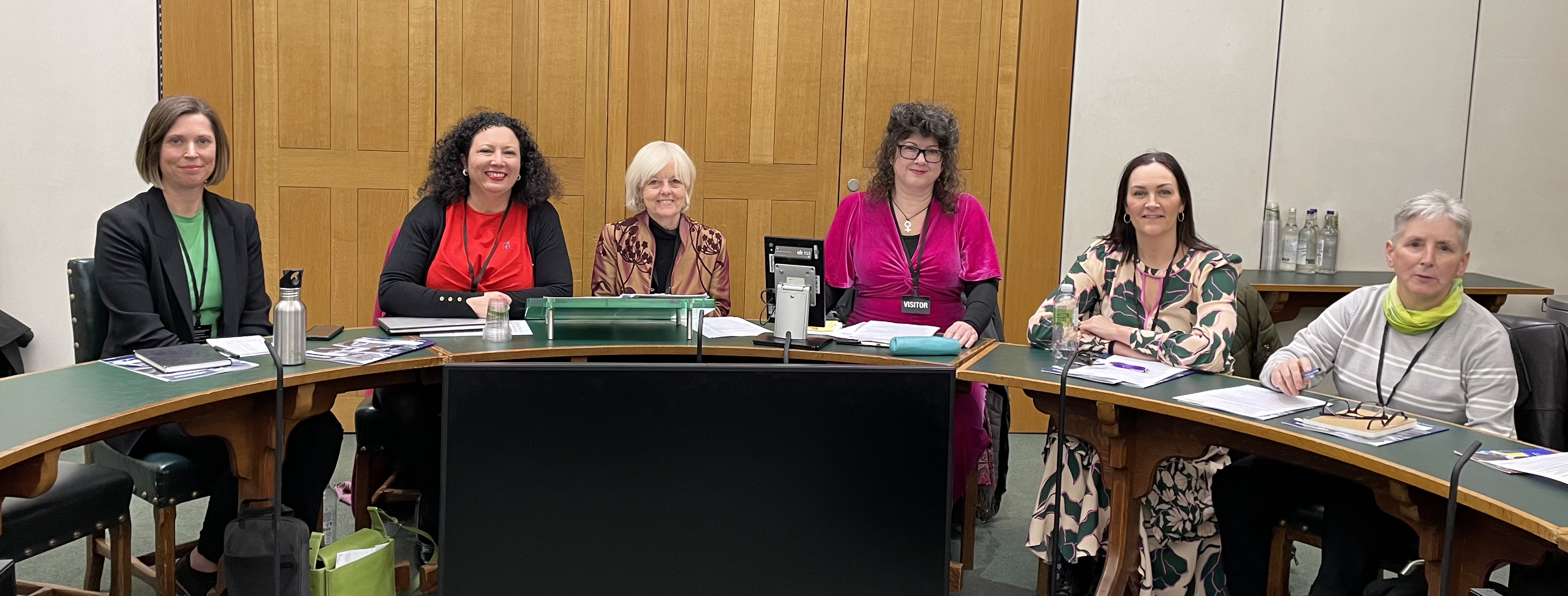We call on politicians to support women’s services

Women’s sector leaders talk to parliamentarians about our research
On Wednesday 18th January MPs and peers gathered with leaders from the women’s sector to discuss Sex Matters’ new report, Women’s services: a sector silenced, at a cross-party meeting in the House of Commons.
The panel discussing the report’s findings was chaired by Labour peer Baroness Hayter of Kentish Town. It included (from left to right in the picture) social researcher and report author Matilda Gosling; Sex Matters executive director Maya Forstater; Baroness Dianne Hayter; previous CEO of Nia, Karen Ingala Smith; CEO of Aurora New Dawn, Shonagh Dillon; and ex-women’s prison governor, board member of Beira’s Place and LGB Alliance, and chair of North Ayrshire Women’s Aid, Rhona Hotchkiss.

The room was packed and the discussion was lively. Women with decades of experience in protecting and supporting women recovering and rebuilding their lives after suffering male violence spoke about how ideas, laws and policies based on gender-identity beliefs have affected them, their organisations, and their ability to do their jobs.
They told of complaints and investigations for “transphobia”, and pressure from funders and commissioners to provide a “trans inclusive service”. Matilda Gosling read out comments from the report from the many women who had contributed anonymously.
Women who have dedicated their lives to building organisations and services to serve the most vulnerable women in society told the parliamentarians that there is a problem with the law. It has become so muddled and misused that it is impeding their ability to meet women’s needs.
Policy lesson: it’s not just about the “single-sex exceptions”
Maya Forstater highlighted the policy lessons and recommendations that Sex Matters has taken from the research, and the call it will be making on politicians to support single-sex services.
Sex Matters has been calling for the government to clarify the definition of sex in the Equality Act. There has been much focus on how the definition interacts with the “single-sex exceptions” in schedule 3 of the act, which allows providers to offer a women-only (or men-only) service where this is a “proportionate means to a legitimate aim”.
Sex Matters has argued that the law allows for clear sex-based rules, but Stonewall and others have argued that it only allows for ad-hoc case-by-case assessments in order to exclude any particular trans-identifying male. The EHRC used to support this individualised case-by-case approach, but it now says in its guidance that organisations can have clear policies.
Those who say there is no problem in the women’s sector justify this by saying that the single-sex services exceptions allow transwomen to be excluded from a women-only service. Or they say that “trans women are women” and therefore it would be unreasonable to exclude them. Sometimes the same people say both things. It is clear that these two statements are not compatible, and the experiences we heard from sector leaders confirmed the pressure this puts them under.
For an organisation to operate for women only, it needs to feel confident it can rely on the single-sex service exceptions if it faces a legal challenge. But it also needs to have a positive commitment in its governance and a mission to provide a women-only service in the first place; data collection that allows it to record what sex people are; policies that set out expectations clearly; communication that makes those policies clear to service users and those who refer them; and training for staff. It needs to be able to attract funding from public sources, in particular local authorities, and the criminal justice system. It needs to be able to advertise for and hire only women for roles that are female-only. And it needs to be able to do all this without facing accusations of “transphobia” and threat of legal challenge at every turn.
The Equality Act is supposed to enable organisations to do this. On paper it recognises that women have particular needs and it is legitimate to meet them. The relevant sections include provisions on charities and associations, the public-sector equality duty and positive action. But the lack of clarity about the definition of sex in the act undermines all this.
This leads to a perverse situation where the law that is meant to protect women is making life harder for those who serve them. As one of the interviewees said:
“Unless you have a government and a country looking at women’s needs they will not be safe.”
For women running hard-pressed, over-stretched organisations, the law and guidance need to be so clear you could write them on the back of a postcard. They should not have to spend a minute more than is necessary justifying or worrying about providing a service that is for women
Sex Matters, together with the Women’s Rights Network and Fair Play For Women, argues that the UK is in breach of the Istanbul Convention because of this.
Politicians from every party have said that they support single-sex services. We call on them to act with urgency to clarify the law to protect women and girls and the organisations that serve them.
Ask your MP to support a call for action
Send our summary report to your MP and ask them to write to Kemi Badenoch, the Minister for Women and Equalities, calling for the government to take action to protect women’s services by clarifying the Equality Act.
